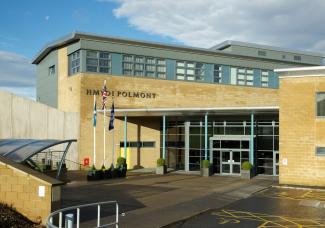Upon entering the main door of the prison, there is a front desk staffed by prison officers. You will be required to present your identification to the staff. The family hub and family contact officers are also located in this area. Everyone attending the prison for a visit should book in 15-30 minutes prior to the start of the session at the front desk. This is to allow sufficient time to allow the staff to process your details and to accept any property or money you may be handing in.
However please note that there is a grace period of 15 minutes for people who are running late. If your arrival is any later, you will not be allowed to access the visit.
You will require a £1 coin to operate the lockers into which you can securely store any items which you are not permitted to take up to the visit room with you. Toilet facilities are available in the visitors waiting area.
All visitors will be asked to walk through a metal detector and given a rub down search by a member of staff prior to going upstairs to the visit room. At times, there may be the SPS Dog Unit operating at the visits – it’s nothing to worry about and you will be given instructions by the staff. If you have any concerns at all – please talk to a member of staff.
In the visit room there are vending machines which take both cash and card.
There is also a new play area for children. This is used for FCO visits but if families want some of the toys or books from this area during a visit, staff will be more than willing to help with this.


